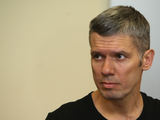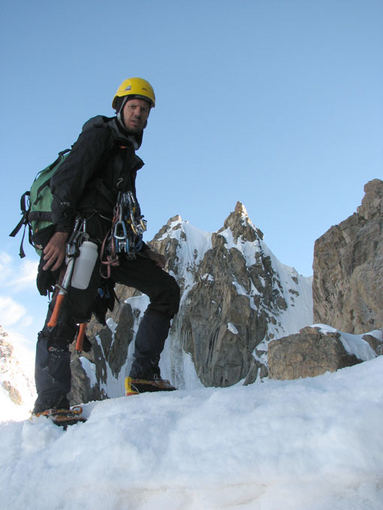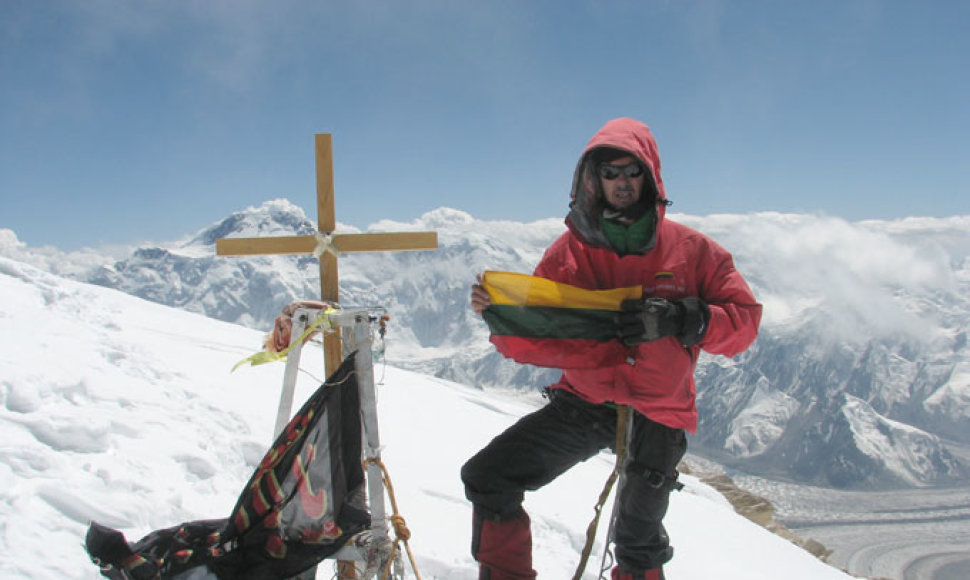Until the incident a little over a week ago, when the Lithuanian climber was killed by terrorists associated with the Taliban, there had been tragic occurrences up in the mountains, isolated cases of kidnapped and murdered climbers in the world's dangerous spots, but professional climbers say they cannot remember another incident of comparable brutality.
 |
| Ernestas Markšaitis |
“And it happened at the base camp, almost a sacred place where everyone takes shelter and comes to regain strength,” regrets Lithuanian veteran climber Vilius Šaduikis, author of a number of books about mountains.
Even during military conflicts, foreign climbers in the Himalayas used to be untouchables, since they are the ones who provide countries with tourism revenue. After the bloody incident at Pakistan's Nanga Parbat, the ninth highest peak in the world, things might change.
Climber Edita Nichols, who recently became the first Lithuanian woman to have climbed Mount Everest, assures she will be considering hiking routes much more carefully from now on, as will most of her colleagues.
“I wasn't that familiar with Ernestas [Markšaitis], but he'd give me good advice and support, particularly during my climb to Everest. He kept inviting me to join him in his expeditions. I myself have always dreamed to see K2, Broad Peak with my own eyes, even Nanga Parbat, but I'd never taken the risk of going to Pakistan – and I certainly will not now,” Nichols says.
Packing rifles to the mountains
 |
| Vilius Šaduikis. |
Vilius Šaduikis, an accomplished Lithuanian climber, has learned the craft from Lithuanian mountaineering pioneers like Gediminas Akstinas, so he has many funny and sad stories to tell about Lithuanian climbers.
“After this terrible event, the media have hinted that perhaps climbers should be armed before going to mountains. In fact, the first generation of Lithuanian mountaineers did indeed climb with rifles in their hands,” Šaduikis relates.
During one expedition to Tajikistan in 1964-1965, climbers, who were heading towards a place near the border with Afghanistan and Pakistan, demanded that a Soviet paramilitary organization secretly give them an army weapon with five bullets. On their second expedition, they also took a hunting shotgun and a sporting rifle.
“We mostly needed them to hunt mountain goats and defend ourselves against wild animals – bears, tigers, wolves. And yet, as we lay inside tents, we felt far more secure with a shotgun at our side,” he says.
Ironically enough, their shotguns were taken away after a hostage crisis perpetuated by two Lithuanians. In 1970, father and son Pranas and Algirdas Brazinskas, armed with rifles, hijacked a plane flying from Batumi to Sukhumi. During a shoot-out, they injured two crew members and killed a flight attendant. The hijackers then directed the plane to Turkey from where they escaped to the United States.
“After the incident, they tightened gun control throughout the Soviet Union. And if they spotted a Lithuanian traveler, checks were even more rigorous,” Šaduikis recalls.
 |
| E.Markšaičio asmeninio archyvo nuotr./In Caucasus |
Phone calls from above
When it comes to mountaineering accidents, the climbing veteran notes that the old generation believed in karma. When a climber escaped death by a whisker, he or she would usually take a break from climbing or sometimes give it up altogether.
“We used to call it 'phone calls.' Markšaitis received particularly many of those lately. His last 'phone call from above' came this February in the French Alps, where Ernestas came very close to dying,” Šaduikis says, referring to an incident where an avalanche killed two climbers.
Another close call was in Pakistan one year ago, when Markšaitis attempted to climb Broad Peak on his own. Or when he and his companion ventured to conquer one of the most challenging summits in the world, K2.
“This is another peculiarity of today's mountaineering – the old generation always climbed in groups of at least four people. These days, there are so many who want to conquer a summit alone. Ernestas was a good climber and what happened in Pakistan has no relation to the usual tragedies in the mountains. Yet we might quote an old saying – guard yourself and god will guard you,” Šaduikis says.















